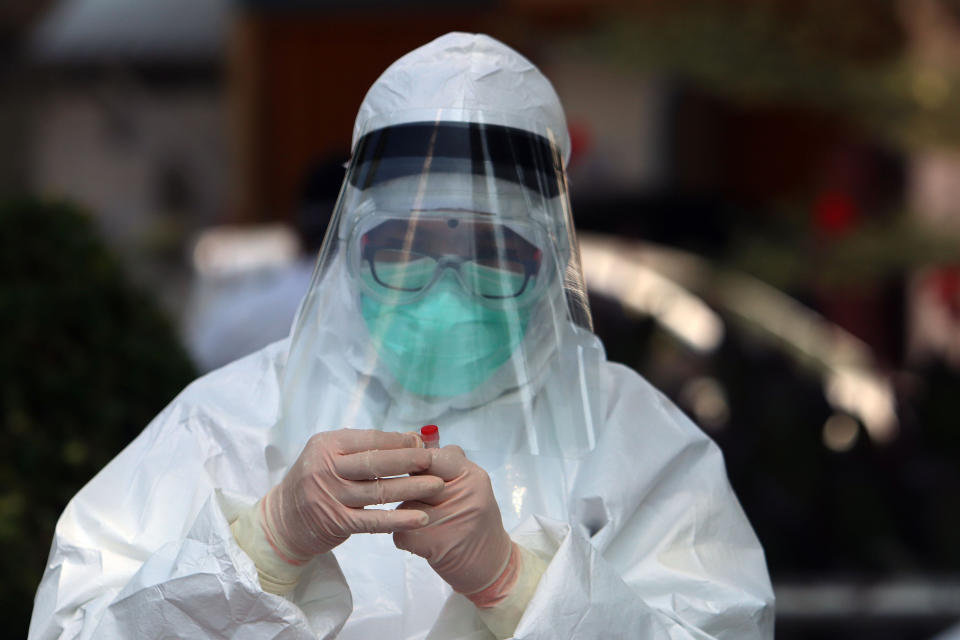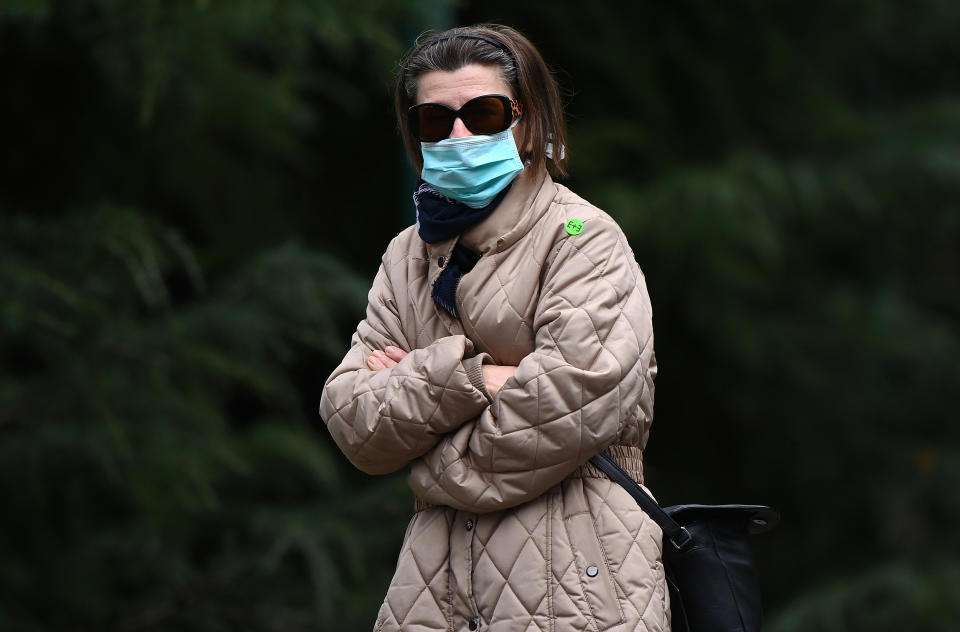What is the coronavirus treatment being hailed a 'breakthrough'?
An experimental coronavirus treatment has been hailed a “breakthrough” in the fight against the outbreak.
The inhaled protein, called interferon beta, was tested on 101 patients across nine UK hospitals by Southampton-based biotech firm Synairgen.
Preliminary results found those given the treatment were 79% less likely to develop particularly severe disease that could require ventilation than the patients on placebo.
Read more: 'Broken heart syndrome' on the rise during coronavirus pandemic
The interferon beta group was also at least twice as likely to recover to the point where their everyday activities were unaffected by the illness, according to Synairgen.
The firm also claimed interferon beta led to “significant” reductions in breathlessness – a key symptom of severe infection – and cut the time spent in hospital by a third, from an average of nine days to six.
Early research suggests the coronavirus is mild in four out of five cases, however, it can trigger a respiratory disease.

How does interferon beta work?
Interferon beta is produced naturally by the immune system when a person catches a virus.
This process appears to be suppressed by the coronavirus as it works to evade destruction.
Giving the protein via a nebuliser, a machine that helps you breathe in medicine as a mist through a mask or mouthpiece, allows it to reach the airways directly.
A direct dose to the lungs may trigger an antiviral response, even in patients with weak immune systems.
Read more: It ‘remains to be seen’ if coronavirus causes brain damage
“The idea behind the trial is by giving more of this molecule to the lung this could help reduce the severity of infection with COVID-19 [the disease caused by the coronavirus], especially in those people who have reduced immune responses to the virus,” Professor Ian Hall from the University of Nottingham said in March.
A French study of 50 COVID-19 patients found that the most critically ill had “a combination of deficiency in a response of a particular interferon, as well as exacerbated inflammation”.
Previous trials by Synairgen have shown interferon beta can stimulate an immune response, with asthma and other chronic lung condition patients “comfortably tolerating the treatment”.
It is also given to people with multiple sclerosis.

How optimistic should we be about the results?
Stock market rules mean Synairgen must release preliminary results of its trial.
These are yet to be peer-reviewed, which involves a team of external experts weighing in on the study’s strengths and weaknesses.
Lead scientist Professor Tom Wilkinson acknowledged the trial was small, but added the treatment benefit was unusually strong regardless.
Synairgen’s chief executive Richard Marsden called the results “a major breakthrough in the treatment of hospitalised COVID-19 patients”.
“We couldn’t have expected much better results than these,” he told the BBC.
Professor Wilkinson added if the findings are confirmed in larger studies, the treatment will be “a game changer”.
Professor Naveed Sattar from the University of Glasgow said the results “seem very impressive” and “exciting”.
He added, however, that the full findings are required to be sure the trial was “robust” and “rigorous”.
Read more: Tom Hanks' coronavirus discomfort 'pretty much done in two weeks'
Not everyone was as optimistic.
Professor Steve Goodacre from the University of Sheffield said: “These results are not interpretable. We need the full details.”
He noted the trial protocol intended to recruit 400 participants, considerably more than the 101 patients who were reported.
“Was the trial stopped early?,” said Professor Goodacre. “If so, why?
“Stopping a trial as soon as a treatment appears to be effective can be likened to stopping a race and declaring your horse the winner as soon as it takes the lead.”
Dr Gillies O’Bryan-Tear from the Faculty of Pharmaceutical Medicine called the 79% reduction in severe disease risk “barely significant because of the small sample size”.
“In a study of this modest size, a chance finding is quite likely, and interpretation should be cautious”, he added.
“I would regard this study as encouraging early stage data which needs to be followed up with a larger study using more robust endpoints such as overall survival.”
Professor Stephen Evans from the London School of Hygiene & Tropical Medicine added: “The adage that says ‘beware of small studies claiming large benefits’ should be borne in mind here.
“There are reasons to believe it could well be an effective treatment, but these results, while encouraging, should not be taken to mean that the treatment is so dramatic that everyone should be given it.”
Synairgen is recruiting high-risk COVID-19 patients to be given interferon beta as soon as they are diagnosed to determine how effective it is in the early stages of the disease.
The team is struggling to find volunteers due to infection numbers being low thanks to lockdown.
It expects the drug to be particularly effective during the early stages of infection.
When could interferon beta be available?
Synairgen will present the trial’s results to medical regulators around the world in the coming days, according to Marsden.
It will then be told what additional information is required to approve the treatment, he added.
The process usually takes months, however, many governments have said they will fast track approval of promising coronavirus therapies.
Synairgen’s trial was the template for the Accord programme, a scheme set up in April to accelerate the development of new COVID-19 drugs.
Interferon beta could be given emergency approval, which was granted to the antiviral drug remdesivir in May. This allows medicines to be used in critical situations before they have been licensed.
Alternatively, permission may be granted for more patients to receive the treatment, with the effects being carefully monitored.
If approved, interferon beta and the nebulisers used to administer it will need to be manufactured in large quantities.
Marsden has said he instructed companies to start producing supplies in April in anticipation of the trial results being promising.
He expects Synairgen to be able to deliver “a few 100,000” doses a month by the UK’s winter.

 Yahoo Movies
Yahoo Movies 
